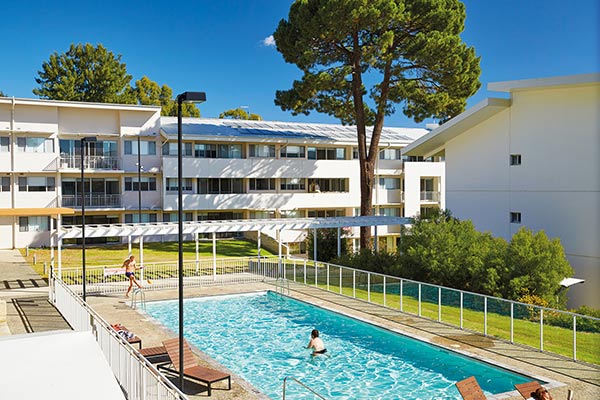
Many cultures learn and teach in different ways. Studying in Australia may not be like what you’re used to at home and you may find that you need some time to adjust – but that’s okay, because at Murdoch we’ll support you every step of the way.
Here’s a few of the main aspects of Australian academic culture you should be aware of.
Your relationship with your teachers
You may find that universities in Australia have a more casual and laid-back approach than what you’re used to at home.
Australia has a democratic society – we value freedom of speech and religion and believe in equal opportunity for all. Therefore, students and their teachers are treated as equals and both parties are respected and listened to.
You’ll learn from lecturers and tutors, who generally like to be addressed by their first name and usually without titles being used. You’ll also be encouraged to challenge ideas, ask questions and express your own thoughts on certain topics, even if it doesn’t align with your teacher’s view.
Your learning methods
As a student at an Australian university, you’ll be encouraged to be an independent learner and to think innovatively, creatively and critically, no matter what course you’re studying.
You’ll set your own timetable, be responsible for how much and what you study and will need to learn to manage and prioritise your work and time. You’ll need to keep up to date with your readings, do your own research, meet assignment deadlines and prepare for your classes, without anyone prompting you.
You will attend lectures and tutorials and possibly other types of classes, like workshops or labs, depending on what you’re studying. Lectures are normally held in a lecture theatre, with one lecturer and a large number of students (especially in your first year). Tutorials are normally held in a classroom, with one tutor and a smaller group of students. In a lecture, you’ll listen and take notes, while in a tutorial you’ll explore and discuss your lecture topics further.
Your academic integrity
Reading journal articles and books is a big part of researching for assignments, however you must always reference correctly when you’ve used information or ideas from others. Using work that isn’t your own and not referencing it is called plagiarism, and there are very strict penalties for students who plagiarise work. There are a few different styles of referencing so make sure you check what style you need to use for your course.
When it comes to tests and exams, you must also follow the rules outlined. There are usually strict rules which require you to be present a certain amount of time before the test begins, rules which don’t allow you to interact with other students, and rules that outline whether you can bring in any notes or reading materials with you.
Part of being a successful student is asking for help when you need it. If you’re struggling with your transition to Australian academic culture, make sure you seek out our student support services.




















